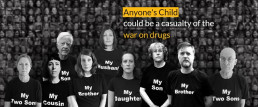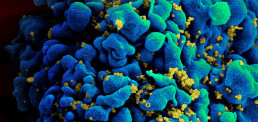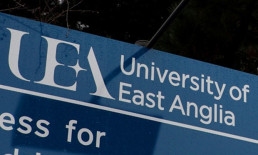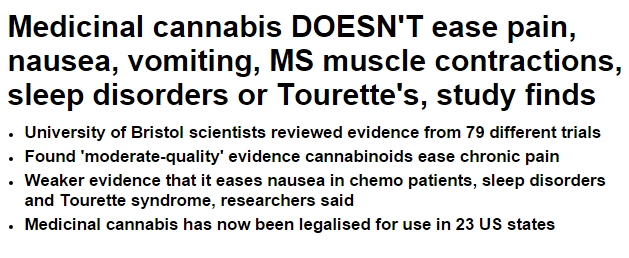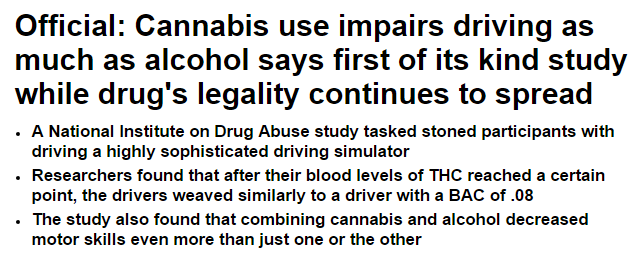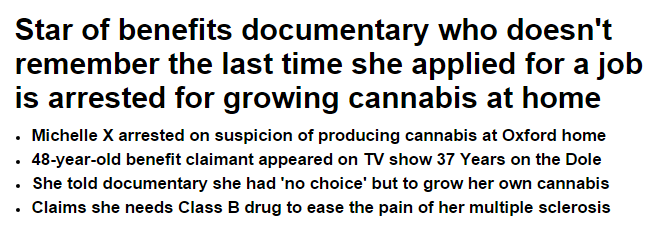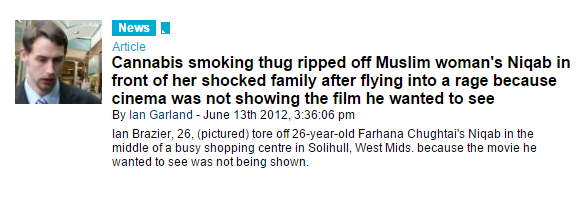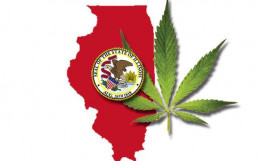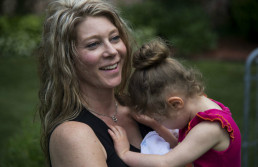“Stop Killing Our Children, Legalise Drugs Now!” - A Letter to David Cameron
“Stop Killing Our Children, Legalise Drugs Now!” – A Letter to David Cameron
Yesterday, a group of once strangers now bonded through bereavement sent a letter to David Cameron calling for the United Kingdom drug laws to be changed.
The family members who constructed the letter to the Prime Minister, have all seen relatives die through drug use.
United as the charity Anyone’s Child, the family have constructed the letter asking for Cameron to review the misuse of drugs act and demanding legal regulation for all drugs in the country.
Read the full letter below:
Anyone’s Child 9-10
King Street Bristol
BS1 4EQThe Rt. Hon. David Cameron MP
10 Downing Street
London SW1A 2AA14th July 2015
Dear Prime Minister,
The UK’s drug laws endanger everyone’s child – we need legal regulation now
We are writing to you from a new project launched today, ‘Anyone’s Child: Families for Safer Drug Control’ (www.anyoneschild.org), and we‘d like to meet with you to discuss the impact of the UK drug laws on families.
We are a group of ordinary families who have joined together because we share the grief and sorrow from having loved ones who have been hurt by our failing drug laws. Please find the time to read the enclosed stories in which we describe what happened to Martha, Roland, Jake, Alan and James. All have had their lives blighted or have died because our approach to drugs is based on criminalisation, not care. What has happened to us could happen to anyone’s child, and will continue to happen to many thousands of other families every year.
We have come to the conclusion that not only do our drug laws harm and kill, but that legally regulating drugs through pharmacies and doctors, rather than street dealers, would have better protected our loved ones. In fact, some might still be alive if drugs were under strict government control.
We find it deeply offensive that you and many of your parliamentary colleagues refer to fears for your own children to scare the public into supporting criminalisation, and to block discussion of alternatives. Yet, as you know, studies from all over the world – including our own Home Office – show that criminalisation does not stop people using drugs, and that it creates other major harms on top of those related to drug use itself. These studies also show that in other countries alternative approaches are already in place that keep people far safer. We could too, if only parliament had the courage to explore them.
We know you understand that we need to change our drug laws. In 2002 you called on the UK government to “initiate a debate at the UN on alternatives to prohibition, including legal regulation”. It is too late for us, but we ask you, for the sake of all those other families who can avoid our fate, to take up your leadership role on this issue again. For now all we ask is that you conduct an independent review into our approach to drugs. You must look at the 2 evidence, and compare what we do now with all the alternatives. A clear majority of the public support a review and it would serve as a catalyst to bring political parties to act together to save lives.
We believe our politicians owe it to all families to protect, not endanger us.
Yours sincerely,
Anne-Marie Cockburn
Cara Lavan
Mick and Hope Humphreys
Katrina Robertson
Rosemary and Jeremy Humphries
Can Medical Cannabis Help HIV/AIDS Patients?
Can Medical Cannabis Help HIV/AIDS Patients?
Medical marijuana currently has a strong case for treating seizures and chronic pain- but what about HIV/AIDS? Many have cited Penny F. Whiting’s report Cannabinoids for Medical Use. Whiting’s thorough investigation on the benefits/risks of medical marijuana was published last month in The Journal of the American Medical Association. Of the 79 clinical studies, four focused primarily on appetite stimulation in HIV/AIDS patients.
Whiting found “moderate-quality” evidence regarding neuropathic pain, cancer-related pain, and spasticity- the most noticeable benefits. Lower quality evidence was found for other symptoms including nausea and weight gain in HIV/AIDS patients.
Whiting preferred using Dronabinol in her research over smoked plants. She found it almost impossible to accurately gauge inhaled marijuana in a research setting. Whiting found that HIV-positive candidates that took Dronabinol versus a placebo showed “some evidence” of weight gain. Whiting adds that she sees potential in areas that are lacking evidence.
Whiting says “Further large, robust, randomized clinical trials are needed to confirm the effects of cannabinoids, particularly on weight gain in patients with HIV/AIDS, depression, sleep disorders, anxiety disorders, psychosis, glaucoma, and Tourette syndrome.” Whiting’s results in the abstract states “Most trials showed improvement in symptoms associated with cannabinoids..” although some fell short of “statistical significance.”
Prohibitionist media sources have concluded this indicates that the efficacy of medical marijuana for certain symptoms is built on hype.
Over 30% of HIV/AIDS patients also suffer from neuropathic pain(which showed higher benefit in Whiting’s study). Other studies indicate that there’s a higher benefit across the board for medical marijuana in HIV/AIDS patients suffering from neuropathy. Secondly, another study indicated that inhaled marijuana increased the probability of weight gain in cannabis smokers as a whole. Furthermore, there’s extensive studies that suggest that marijuana helps block HIV replication before a patient ever progresses to AIDS wasting syndrome.
Appetite stimulation is only one of the ways medical marijuana can help those infected with HIV. Penny F. Whiting and pro-cannabis activists want the same thing- more funding and more clinical research.
Terminally ill man charged after using Cannabis instead of Morphine
Terminally ill man charged after using Cannabis instead of Morphine
A terminally ill man has been charged after using cannabis to help relieve the symptoms of his terminal illness.
Stuart Rogers was found with 18 bags of cannabis in his car after police pulled him over in a traffic stop.
Magistrates in Blackburn, Lancashire heard in court that Rogers did not care what happened to him, as cannabis was the only way in which his symptoms were relieved.
Paul Huxley, defending, said doctors had told his client that nothing more could be done.
“It is because of that he turned to cannabis, it helps him to relax and sleep at night which is something prescribed medication has not achieved.”
Rogers has stated he will continue to use cannabis despite his sentence of a conditional discharge for 12 months, a £180 criminal court charge, £85 costs and £15 victim surcharge.
Breakthrough as Scientists Remove "Unwanted Side Effects" of THC
Breakthrough as Scientists Remove “Unwanted Side Effects” of THC
Scientists from England and Spain have collaborated to discover a potential breakthrough in the therapeutic use of medicinal cannabis by separating THC’s medicinal benefits from its unwanted side effects.
The team, comprised of scientists from the University of East Anglia and the University Pompeu Fabra in Barcelona last year uncovered the ground breaking news that THC may help reduce growth in tumours and may have just uncovered another key finding for the future of cannabis as a genuine alternative treatment.
Using mice models, the research study revealed that reducing levels of certain serotonin receptors in the brain blocked any cognitive impairment from THC but did not change the cannabinoids’ more therapeutic effects such as pain relief.
Dr Peter McCormick from the University of East Anglia School of Pharmacy explains;
“THC, the major active component of marijuana, has broad medical use – including for pain relief, nausea and anxiety. Our previous research has also found that it could reduce tumour size in cancer patients. However it is also known to induce numerous undesirable side effects such as memory impairment, anxiety and dependence.
“There has been a great deal of medical interest in understanding the molecular mechanisms at work in THC, so that the beneficial effects can be harnessed without the side-effects.
“THC acts through a family of cell receptors called cannabinoid receptors. Our previous research revealed which of these receptors are responsible for the anti-tumour effects of THC. This new research demonstrates how some of the drug’s beneficial effects can be separated from its unwanted side effects.”
Daily Mail Headlines that are Influencing U.K Opinion on Medical Cannabis
Daily Mail Headlines that are Influencing U.K Opinion on Medical Cannabis
It seems bizarre and somewhat incomprehensible that any prominent 21st century public forum would have such a derisory attitude towards something that appears to be helping millions of people worldwide. However, the Daily Mail’s unrelenting wave of anti-cannabis propaganda has, in recent times, reached peak condemnation.
At the risk of sounding like a rant-filled Russell Brand YouTube video, the danger of said condemnation lies in the number of people who engage with the Mail on a daily basis.
In 2012, statistics revealed that the MailOnline was the world’s largest newspaper website, a title that they still hold in 2015. Up to 50 million unique users can visit the MailOnline every month to engage with articles that condemn cannabis so vehemently.
Below are a selection of the anti-cannabis Daily Mail headlines of 2014-2015; some focus on a general disapproval of cannabis as medicine, while others seem to have a more insidious agenda, deceptively transforming otherwise unrelated news into a cannabis hate campaign:
Published on the 24th June 2015, this article references a scientific study by the University of Bristol.
Notice that while the initial headline discounts medical cannabis use, the bullet points below seem to show that evidence was found in the study, indicating the potential therapeutic use for cannabinoids in all of the listed ailments, even if it is ‘moderate-quality’ evidence.
Perhaps the Mail should have looked at the thousands of research papers published that indicate medical cannabis can certainly help with pain, nausea, vomiting, MS, sleep disorders and Tourette’s. A very select few are listed below. You can find hundreds more ailment specific research papers available at MedicalMarijuana.co.uk.
Amelioration of cancer chemotherapy-induced nausea and vomiting by delta-9-tetrahydrocannabinol. (Ekert H, Waters KD, Jurk IH, Mobilia J, Loughnan P, 1979)
Delta 9-tetrahydrocannabinol (THC) is effective in the treatment of tics in Tourette syndrome: a 6-week randomized trial. (Müller-Vahl KR, Schneider U, Prevedel H, Theloe K, Kolbe H, Daldrup T, Emrich HM, 2003)
Smoked cannabis for spasticity in multiple sclerosis: a randomized, placebo-controlled trial. (Corey-Bloom J, Wolfson T, Gamst A, Jin S, Marcotte TD, Bentley H, Gouaux B., 2012)
Oromucosal ∆9-tetrahydrocannabinol/cannabidiol for neuropathic pain associated with multiple sclerosis: an uncontrolled, open-label, 2-year extension trial. (Rog DJ, Nurmikko TJ, Young CA, 2007)
Apparently, its official!
Published on the 24th June 2015, the above headline reports on a study by the National Institute of Drug Abuse indicating that cannabis ‘impairs’ driving just as much as alcohol. The use of the word “impaired” may be an issue here. Medical users have a level of metabolite in their systems from regular cannabis use that puts them in the “impaired” category without necessarily being so.
A landmark study released in February 2015 by the NHTSA (National Highway Traffic Safety Administration) indicated that there is “no correlation between car accidents and cannabis use”. This was the largest study of its kind ever conducted, with a far greater focus group than any other similar research before or since.
This headline, published on July 3rd 2015, could perhaps be more accurately rephrased, “Woman with severe M.S uses her disability allowance for cannabis, her only source of pain relief”.
While there is no question that ‘Michelle X’ had to be arrested because of the laws in the United Kingdom, the headline above typifies the Mail and their agenda to discount medical cannabis as a valid solution for many sick people.
There is no mention of Michelle’s disability in the headline and no mention of her using cannabis for medicinal purposes. Her job status is a fleeting piece of information, not relevant to her cannabis use but facilitates the inaccurate belief by some that every cannabis user is a lazy, jobless citizen on benefits.
Cannabis use for Multiple Sclerosis has been validated by countless research reports over the last decade. Even the National MS Society list many recent research trials which indicate that cannabis can help the debilitating illness.
The damaging effects of articles such as those above inhibit the general public from educating themselves on a genuine alternative medicine. Public knowledge of cannabis and its therapeutic benefits is vital for any future changes to drug laws in this country.
The Daily Mail publish headlines on a daily basis to ensure that many completely unrelated atrocities are rather vulgarly blamed on cannabis. This type of propaganda is damaging, not just to the recreational cannabis market but for medical users who, in the opinion of the authour’s of these articles, are tantamount to addicts. Those that thought the Mail may not be agenda driven, you may want to look at some of the headlines below and think again.
It is worth noting, that recently, MailOnline have started to increase their coverage of pro-cannabis news. While this is a minuscule bright star in an endless night sky abyss of anti-cannabis coverage, and clearly a nod to their online gargantuan American audience (according to Alexa.com, MailOnline is the 72nd most popular website in the USA), it is proof that even the most agenda-driven public forums can be influenced by consensus of the people.
Is the Illinois State Medical Marijuana Program Slowly Dying?
Is the Illinois State Medical Marijuana Program Slowly Dying?
While legalization efforts proceed across the U.S., it is increasingly clear that “legalization” is a broad term that is not all it’s cracked up to be. For anyone.
This is especially true in states where change was brought about by legislative mandate. Despite all the moans and grumbles if not all out floor fights still going on especially in Washington, in states where legislatures have led the charge, the downstream results to date are even worse.
In the most restrictive states, in fact, rollouts so far have been slow, and the licensing process fraught with charges of political cronyism. Illinois is no exception. To date, the state has only approved 2,500 medical marijuana patients since the registration began about 9 months ago. The low patient count has already prompted at least one company to return the state cultivation license it won back to the state. The permit winner, Green Thumb Industries, has now decided that it does not want to pay the $200,000 (£150,000) license fee plus establish a $2 Million escrow account and returned the same to the state who in turn offered it to PharmaCann, a company with one existing cultivation permit and four dispensary licenses.
That said, Green Thumb may not be the last ganjapreneur to head for greener pastures. There are rumblings afoot that other license recipients may do the same thing if patient numbers continue to be so low. Some fear that the failure to establish a viable regulated business in the state by 2017 may kill the state industry altogether, although others point to the likelihood of federal reform during this period making such distinctions increasingly arcane.
That said, advocates in both the business community and those representing patients are worried about low patient registration turnout this far into the process. There are several reasons both patient advocates and the increasingly concerned marijuana business community cite for this obvious under-representation of patients in the state registry. There are an estimated 75,000 marijuana patients in Illinois. This number may well increase if Illinois approves 11 new conditions for which marijuana may be prescribed (including PTSD) as it is widely expected to do by this summer. However, the prospect of a criminal background check, fingerprinting and a $150 yearly fee (£120) a year registration fee plus a lot of paperwork is still keeping many potential patients away.
Kris Krane, co-founder and managing partner of 4Front Advisors also said that the lack of access to dispensaries is undoubtedly discouraging more than a few patients. “The lack of dispensaries contributes to the low patient count. Without an access point for medicine, many people won’t go through the process or spend the money to become a patient.” That said, many including Krane believe that the so-far dismal registration rates may change drastically once dispensaries actually start to open. “We’ve seen in other states that patient populations rise with the opening of retail dispensaries,” he said.
But so far at least, with state physicians still reluctant to prescribe medical pot locally, as many are, plus the implications of what would happen if the program disappeared in a state where marijuana is not yet decriminalized for a broader population, it is not surprising that many potential patients are just choosing to stay home.
6-year-old Girl Stands for First Time after using Cannabis Oil
6-year-old Girl Stands for First Time after using Cannabis Oil
A 6-year-old girl has been able to stand for the first time, after doctors in Michigan prescribed her cannabis oil to fight her violent seizures.
Bella Chinonis suffers from the rare 1p36 deletion syndrome that causes a number of serious problems, including developmental delays, seizures and limited speech ability.
Based in Grand Blanc, Bella is one of just 150 under-18’s prescribed medical marijuana in the state of Michigan. Speaking to local media, Ida Chinonis, Bella’s mother has described how the oil has changed her young daughters life;
She can stand now. She responds to voices and she loves the movie ‘Frozen.’ She didn’t do that before and the only thing different we are doing is giving her medical marijuana.
The process to ensure Bella had access to cannabis oil was not easy. The Chinonis’ neurologist did not prescribe cannabis based medicine so the family had to look elsewhere. Another challenge for the family was that the Michigan medical marijuana program states that two doctors must approve the use of medical cannabis in anyone under 18. Luckily for the Chinonis’, medical professionals from Detroit and Texas approved Bella for cannabis oil after examinations.
Bella’s oil has been created specifically for her illness, with an exact THC/CBD ratio ensuring that the 6-year-old receives the correct dose of medicine.
The Chinonis consider themselves lucky to have access to this medicine but are aware that many other children like Bella are still suffering due to cannabis laws. They hope that one day, every child will have access to medicine that can improve their life significantly, just as cannabis oil has done for young Bella.
Anti-Cannabis Lawmakers Remove Research Barriers
Anti-Cannabis Lawmakers Remove Research Barriers
U.S. Senators Charles Grassley (R-IA) and Dianne Feinstein (D-CA) have been extremely vocal in their intentions to continue the war on drugs.
Marijuana reform was their battlefield – they used every possible opportunity to oppose the legalization; attacking and criticizing the Obama administration for keeping the federal interference far from the states that decided to implement legalization laws and allow their citizens to legally consume marijuana, whether medical or recreational.
But something has changed along the way – Grassley and Feinstein have embraced a completely different approach and have teamed up to push the federal government forward to clear the way for scientists who want to conduct cannabis research studies on the medical benefits of the plant.
The duo have sent two letters to the Department of Justice and the Department of Health and Human Services (HHS) in which they requested the departments work together in order to “determine ways to remove any unnecessary barriers that stand in the way of research into the potential medical benefits of marijuana.” Needless to say, medical marijuana advocates were thrilled to hear about this news and welcomed the support.
Let us remind you that scientists who want to research marijuana are facing a long line of obstacles because marijuana is still considered a Schedule I drug – this category is home to the most dangerous drugs without any medicinal value, such as heroin.
Because of this, only a handful of researchers have the necessary permits to conduct the research and every new scientist has to undergo a long and ridiculous process to get these permits.
One of the medical marijuana advocates, Mike Liszewski, director of government affairs for Americans for Safe Access, told Marijuana.com that the letters coming from two of the biggest opponents of marijuana reform are “yet another sign that the federal government is backing away from the position that marijuana has no medicinal value.”
But how could it not back it up?
Cannabis has been used for medicinal (and other) purposes for thousands of years, and over the past few years we have witnessed a growing number of individuals, namely children, using CBD-rich cannabis to successfully treat epilepsy. And epilepsy is just one of the many diseases and disorders that marijuana can cure or help manage.
It can be very discouraging to have the federal government turning a blind eye on this matter, which is why we admire all the advocates who have made the medical marijuana reform happen.
U.S Army Veteran Faces Life in Prison for using Medical Cannabis
U.S Army Veteran Faces Life in Prison for using Medical Cannabis
A U.S Army veteran is facing life in prison after using medical cannabis to combat his severe Post Traumatic Stress Disorder (PTSD).
Kristoffer Lewandowski of Oklahoma has served 3 tours with in Afghanistan and Iraq with the US Marine Corps and was honourably and medically discharged in early 2014. After being prescribed 13 different medications by his doctors and noticing no improvement in his well being and serious liver issues, Lewandowski decided to grow 6 cannabis plants in his garden in the hope that medical marijuana may help his severe illness.
After suffering a major PTSD episode in 2014, Lewandowski’s wife called the emergency service. When Police arrived at the family home, they discovered the 6 plants growing in his garden and arrested the veteran and removed his children from the premises. Despite the combined weight of the cannabis not totalling a single ounce, Oklahoma laws on cultivation carry a maximum sentence of life imprisonment.
A long legal battle ensued, and after the Lewandowski family managed to raise the bail funds needed to release Kristoffer, they moved to California, where the PTSD sufferer could be legally prescribed medical cannabis.
However, after accidentally missing a court date while in the care of a Veterans Administration psychiatric hospital, Lewandowski was re-arrested and is currently waiting extradition back to Oklahoma where he faces life in prison.
Unable to see his children and suffering without his medical cannabis, Lewandowski is now searching for proper legal defence and has set up a GoFundMe page to help with the costs of this.
British Mother "made to feel like criminal" after giving daughter Cannabis Oil
British Mother “made to feel like criminal” after giving daughter Cannabis Oil
A Birmingham based mother reveals she felt like a criminal after giving her 3-year-old cannabis oil for her epilepsy.
Louise Bostock’s daughter Jayla has brain damage and a severe form of epilepsy. After taking Jayla to hospital for a regular check-up and revealing to her doctor that she had given her daughter cannabis oil, Bostock was told that she would not be allowed to return home with her child.
Jayla was kept in hospital for 5 days with no medical reason for her being there. The hospital staff noted the police and council who attended a safeguarding meeting to ensure the child’s welfare.
Bostock explained her devastation of the situation after stating that cannabis oil allowed her daughter to smile for the first time ever;
It’s been an absolute nightmare. Completely heartbreaking in every way. I was made to feel like a criminal just for trying to do the best by my daughter. Since having the oil, Jayla’s quality of life has completely changed. Usually, she is comatose and sleeps all day. But she has actually started to eat properly and now watches TV with a smile on her face. I heard her laugh out loud for the first time – can you imagine? But I was told that she had to stay in hospital and that police would be called if I didn’t comply. I didn’t understand it. There was even talk of my kids being taken away from me because I was trying to help Jayla. I was essentially being punished for trying to save my daughter’s life.
After being permitted to return home with her child, Bostock is now fighting for a cannabis oil prescription for Jayla, in the hope that her daughter can lead a seizure free life.

